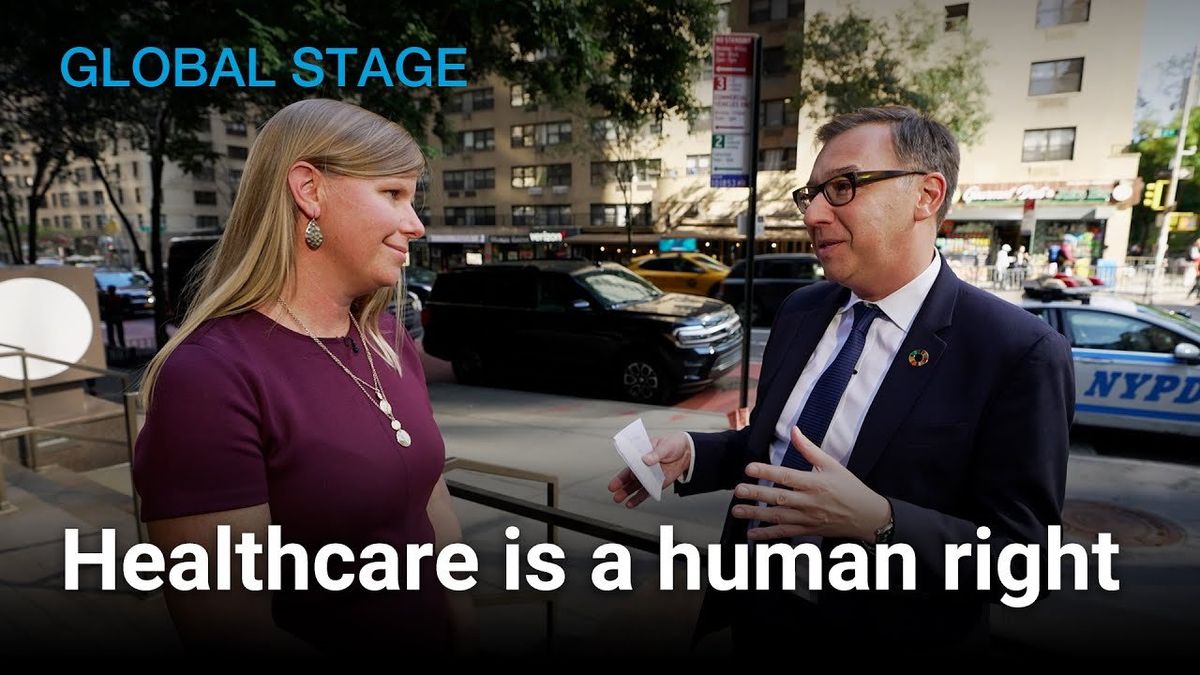“Health is a human right”: How the world can make up progress lost to COVID
The state of public health in the developing world bears some deep scars from the COVID-19 pandemic. Over the past three years, immunization rates have dropped to levels not seen in three decades. 2 billion people are facing "catastrophic or impoverishing" health spending worldwide according to the World Health Organization. And governments in the Global South are taking on more and more debt at the expense of investment in health and social services.
Kate Dodson, the Vice President of Global Health Strategy at the UN Foundation, is on the frontlines of the fight to give the most vulnerable people in the world access to proper healthcare. She works to connect experts and innovators with the UN, and find resources to support their work.
She’s calling on governments to invest in basic elements of public health, including primary care access, and properly remunerating healthcare workers — the majority of whom are women, worldwide. And more fundamentally, she wants leaders to treat health as a human right that all deserve to enjoy.
More from Global Stage: https://www.gzeromedia.com/global-stage/
- Can surveillance prevent the next pandemic? ›
- Highlights from our live discussion on post-pandemic health security ›
- Eris on the rise ahead of predicted fall COVID wave ›
- China's COVID lockdowns made its people depressed and hurt its economy ›
- Ian Explains: Is the world better today thanks to human progress? - GZERO Media ›
- How can the world build back better public health after COVID? - GZERO Media ›
- Is life better than ever for the human race? - GZERO Media ›

















